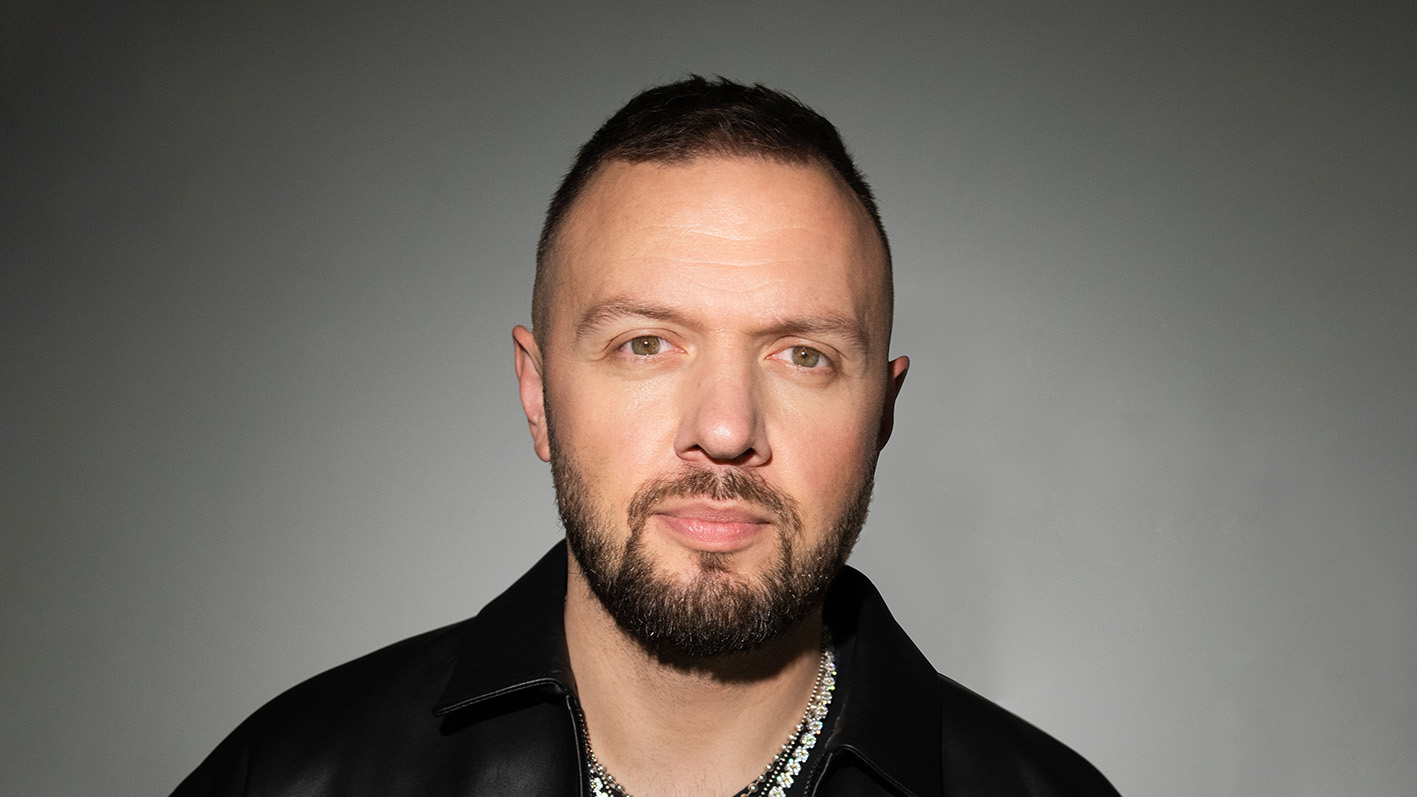
For many readers, Chris Lake will need little introduction. The Norwich-born DJ, producer and artist first achieved recognition in the mid-2000s with the single Changes featuring Laura V. After a rapid-fire assortment of increasingly impressive collaborations, his high-profile work with deadmau5 on the album 4x4=12 garnered Lake a Grammy nomination.
From then on, Chris’s star rose meteorically, with record-busting remixes of tracks such as Jess Glynne’s Hold My Hand and Calvin Harris and Disciples’ How Deep Is Your Love reaping tens of millions of streams globally. All the while, Chris displayed a Midas touch when it came to writing modern house classics, such as the mighty Boneless (with Steve Aoki), Turn off the Lights and the mesmerising euphoria of last year’s In The Yuma.
We met the now LA-based Chris Lake in London, during a rare trip home. We’re happily bemused to find that this globe-straddling mega-star is himself giddy about the prospect of being interviewed by MusicRadar's sister magazine Computer Music, where this interview was first published.
“When I first got into music, I was picking up Computer Music off the shelf every month. It really helped me learn and understand what was possible, and what was available for making music. I remember the magazine grew off the back of the possibilities of the first seeds of the DAW. It’s funny how I remember some of the old cover features and those artist interviews still stick in my head.”
It’s clear, then, that Chris Lake started out as one of us, as he nostalgically reflects on a much simpler time. But down to business, and the first topic on our agenda is the mind-blowing Coachella set that he performed with long-time collaborator Fisher: “Ah, it was intense. There was a lot of work involved. I actually felt a lot of responsibility honestly. There was a lot of thought behind why we were doing that set and why we were doing that show. There’s been this real growth of house music, particularly in North America.”
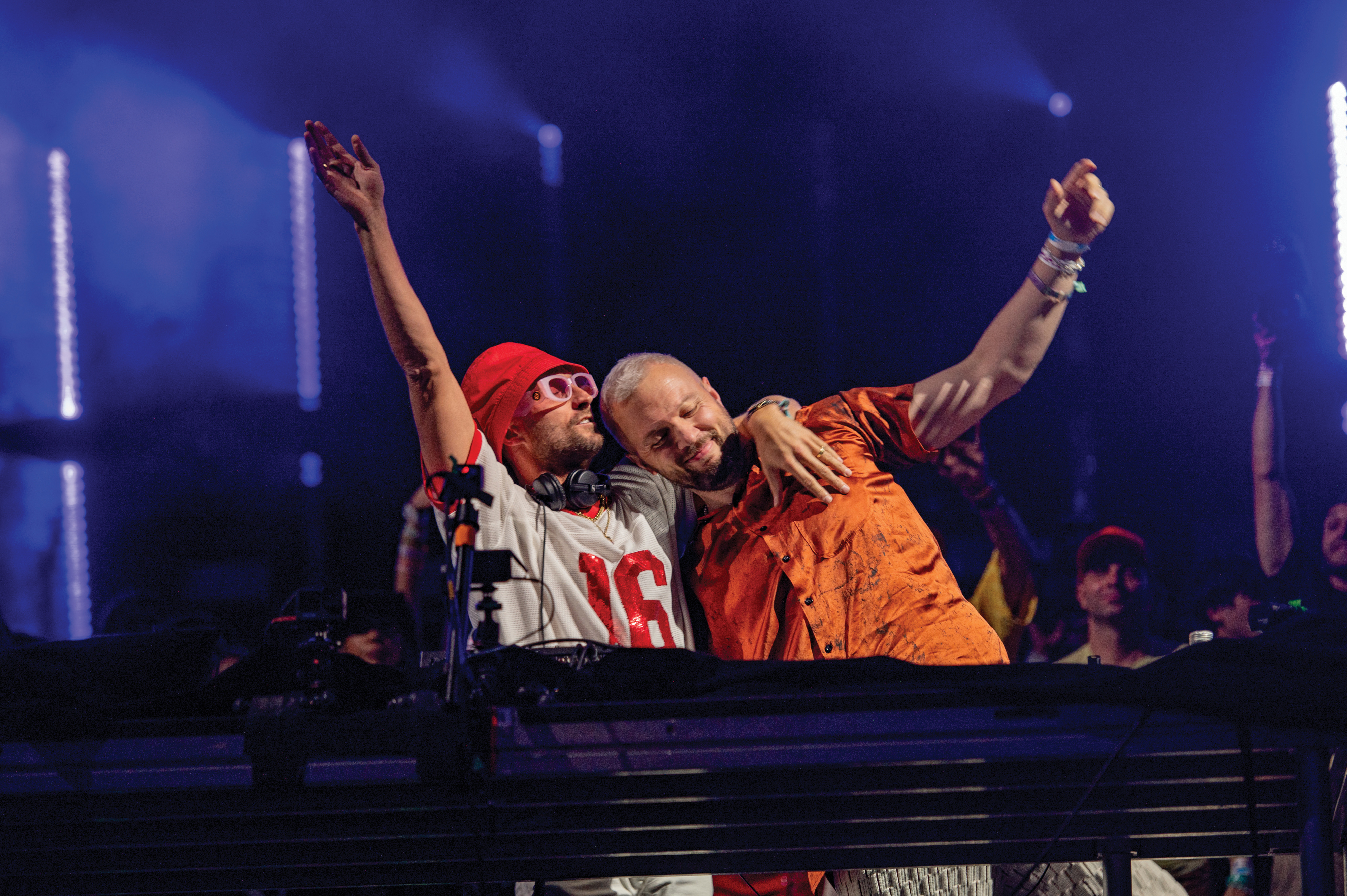
Chris explains that a little bit of tech-terraforming had to take place to prepare the stage. “One of the reasons we were booked for that show was that we wanted to see if that kind of music would work, on that kind of size crowd and on that type of stage. Coachella is a multi-genre festival, but those kinds of stages are really not set up for what we do. So, we had this opportunity to go in and bring our vibe and experience to that stage.
“It wasn’t a case of just setting up the decks to play music. We put a lot of time, effort and thought into how we could accurately create the experience we wanted on that stage. We brought in a lot of production, we had our own sound tech. We re-amped all of the speakers specifically for our set. We had a very different sound set-up compared to everyone else.”
The amount of work that Chris, Fisher and the team undertook was extensive. “The programming of the lights was complex, we set up lights on the delay towers to create depth for the lighting. They were basically set-up and stood there dormant for the whole weekend until our set at the very end.
“We went to a lot of lengths to make something special, and take advantage of the opportunity that we had to play to that kind of audience. It really worked and really connected. People felt the difference so we’re very proud. It was probably one of the most stressful things I’ve ever been involved with, but it worked out really well.”
Laying the groundwork
A track that Chris regrets not including in the Coachella set is the recently released Beggin’, a slick slice of booming house-pop that resulted from a collaboration with Aluna (of electronic duo AlunaGeorge).
We ask him how the track originated. “I knew the AlunaGeorge stuff. I work with a great team of people around me and I’m always asking if anyone has any good ideas of people that would be good to collaborate with. Her name came up and I thought, ‘fuck yeah, let’s do this’. Someone arranged a session for me, but it was actually quite embarrassing because I messed up the days and she turned up at my door. I was a bit confused, then I was so embarrassed.”
Once apologies had been said and ice had been broken, a hypnotic new track started to come to life. “The starting place was the low end. I’d made the low-end for an edit of another track I was working on. When you try to go with the flow of a session – especially with someone you’ve only just met – you don’t necessarily want to go ‘cool, I’m just going to go off and shape a kick’ or start messing with bass patches. You don’t want to waste those hours laying the groundwork.
“For me I find it’s easier to think about things I’ve been working on recently. In Ableton Live, I love the feature of being able to open up the project and then using the browser, dragging in individual tracks from other ideas. I dragged in the kick and the bass of another project then re-wrote the bass. That was the start of Beggin.”
We wonder if Chris has been an Ableton Live user since day one? “It’s been a long time! But I wasn’t a first user. I got into music around the late ’90s. The first DAW that I used was Sonic Foundry’s Acid, I then moved into Reason and then to Logic, and then, finally, Ableton Live. Live is my language now.”
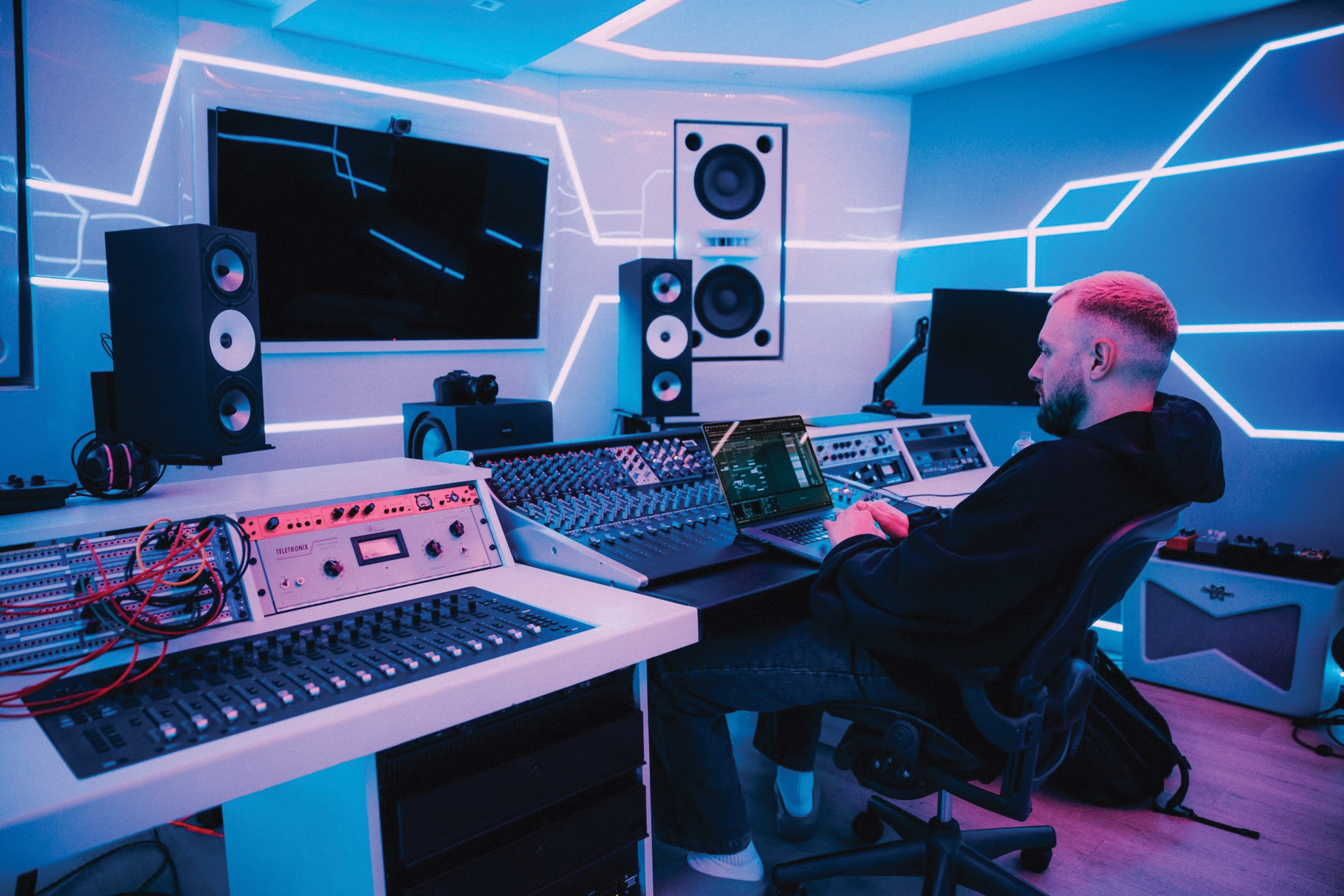
As we discover, it turns out that Chris’s setup these days is largely in-the-box, a result of the studio-denying realities of travelling. “Honestly, there was a moment about seven or eight years ago where I realised I was spending a ridiculous amount of time on the road. I started to feel paralysed when touring. I felt like I couldn’t do anything when I was away from the studio. I realised that I had to teach myself how to make music when I was out and about. I kind of forced myself into being uncomfortable. I taught myself how to make music on a laptop and nothing else.
“How do you teach yourself that? Well you just have to accept that you don’t have your studio monitors, a MIDI keyboard and all the other home comforts. But this is what I do have. It was like going back to the initial constraints that I had when I first started making music. Using a Roland MC-505 and standalone controllers. The magic of music back before everything you’ve featured in Computer Music has allowed us to do.”
Chris explains more about how relying on just his laptop, sans even headphones, allowed him to perceive his tracks differently. “I actually started making music just listening with the laptop speakers, using just the QWERTY keyboard instead of a MIDI keyboard to put in notes. Now I’m really good at it. I can make 80% of my music anywhere; in a noisy environment or a busy room. I feel like I understand the sound of the laptop speakers and I’ve even released music that I’ve only monitored on laptop speakers.”
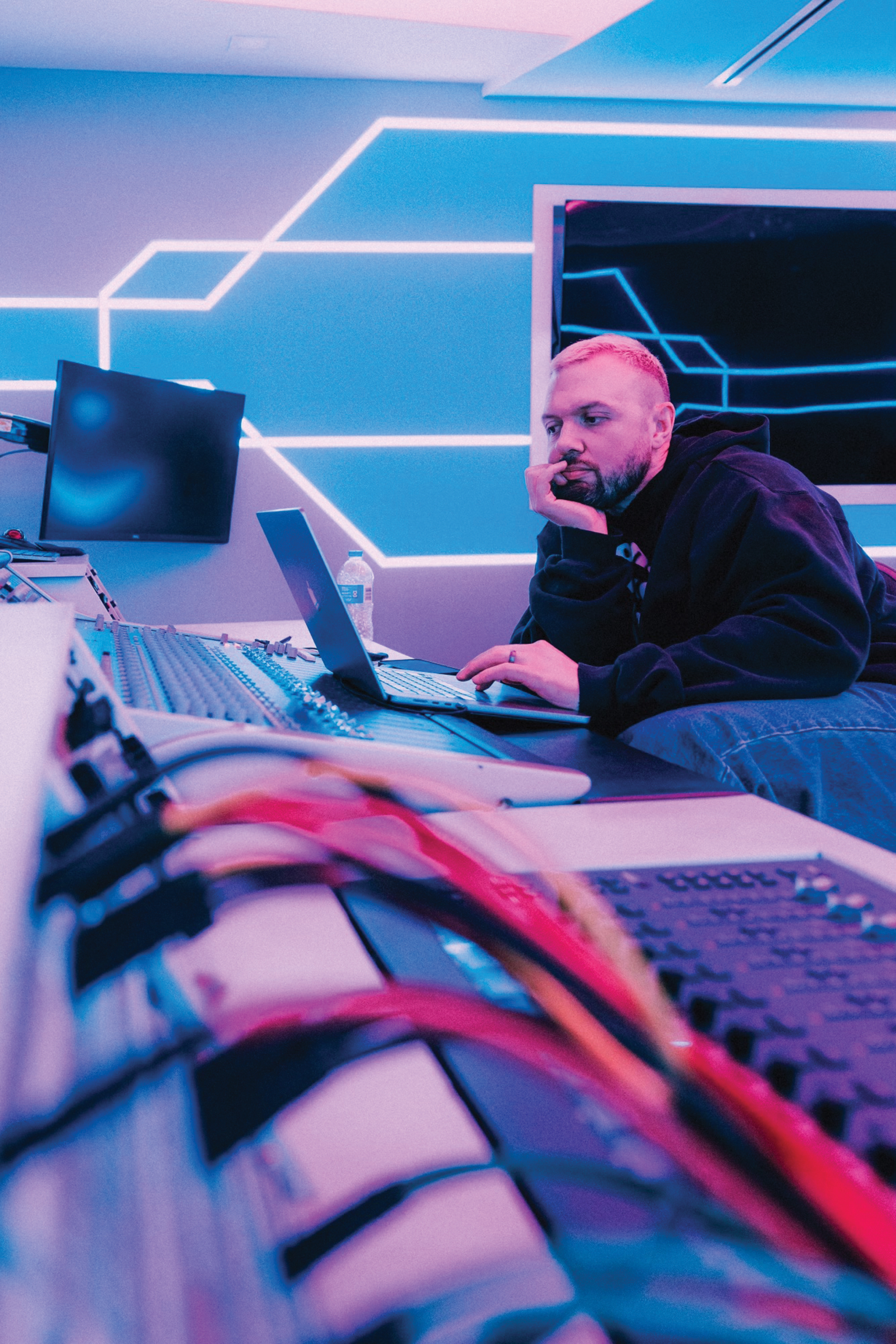
Chris is making a strong case for being the most literal ‘computer’ musician we’ve ever met. “I made my track I Remember in my parents’ living room. I didn’t even listen to it on headphones. I finished it, rendered it out then played it the following night in Moscow. It was one of the best-sounding records I’d ever made. I ended up listening to it on monitors a couple of weeks later to check the final mix, but I hardly changed anything since that first laptop mix. It sounded fantastic. Don’t get me wrong – on the super low end it’s definitely pretty difficult to be accurate – but, on that occasion, I fluked it and got it right.
“I’ve realised that when I’m in an acoustically treated room with great speakers you hear much more of the finer detail. The benefit of using non-producer-grade speakers is that you listen to the overall ‘track’ more, and can get a feel for the overall composition and the idea.”
Vibe-catching
As Chris told us, the foundation of Beggin’ was the low end, and that led us to wondering whether that’s typical for most tracks. “Yeah, I often start with a groove and drums, but it really depends. I just try to catch a vibe anywhere, something that clicks. I have loads of ideas on the go, I just do little sketches here and there. I normally make an idea, save it, do a clip of it then maybe come back to it a few days later.
“The power of this is that I end up making lots of individual little ideas and find combinations of sounds that I like. Again, I love using Ableton Live’s ability to drag and drop between projects. Often I’ll be working on another idea, then I’ll remember I liked a kick and bass combination, so I’ll drag that in. It’s quite a modular process. I find it quite creative.”
In terms of go-tos, Chris swears by popular monolith Omnisphere, as well as a few other choice soft synths, “I really like Spectrasonics’ Omnisphere, that’s kind of like a ROMpler in a way. It’s really powerful, I love the waveforms, it’s a versatile tool for building your own synths. I love Native Instruments’ Massive and I love Lennar Digital’s Sylenth still. Synplant (from Sonic Charge) is something I really like, too. It’s an organic synthesiser released around 10 years ago. It’s weird, but I actually used that for the lead on In The Yuma. It’s got such a great sound.”
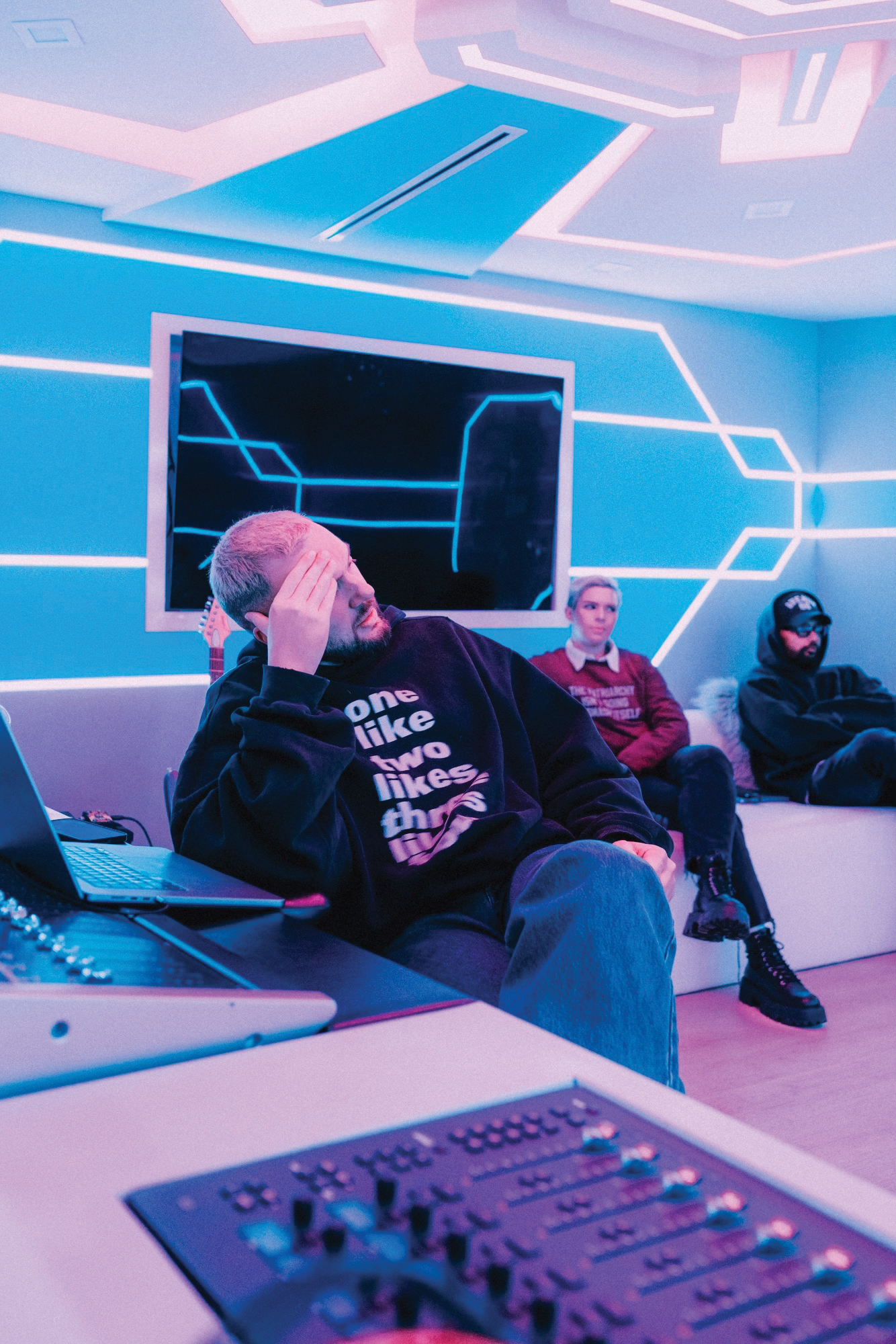
Despite the giddy euphoria of the live experience, nevertheless Chris doesn’t hesitate in stating that the studio is his favoured place to be. “My career really stems from the work that I do. I love recorded music – I think it’s so powerful. Shortly after I started getting somewhere with my music, I remember having a moment where I was laying in bed on a weekend I wasn’t playing and being like ‘there’s probably a lot of people dancing to my music right now’. As I’m sleeping, the work that I’ve done is having an effect. That idea always made me feel really great.
“In the back-end of Spotify, there’s a tool where you can see the number of people listening to your music in real-time. It’s incredible. Knowing that thousands of people are playing your music as we’re speaking is a powerful thought. Live music and DJing is for the people who are there at that moment, and that’s got its own power and its own significance, but the power of recorded music I think means more to me. Overall, I’d consider myself more of a producer than a DJ.”
We wonder to what extent Chris is plugged-in he is to current developments in electronic music, and how much that affects his production process. “I always think about how to keep yourself fresh. I think it’s good to listen to new music up to a point, but I actually don’t listen to that much of it. It’s very easy to be coloured and tainted by it. For me, I have a constant fight of trying to stay as the core influence of my own music. I don’t try to follow trends, but I try to think about what I can do to influence trends!”
Back to black
Chris’s record label, Black Book Records, isn’t just an outlet for up and coming electronic artists; Chris also adopts a mentoring role with many of the signed artists, sharing his wisdom on both production and navigating the wider industry.
“I’ve got loads of involvement. I love it, I have a great team as well, it’s a collaborative process. I like to help guide artists and give advice on things I think would help them musically. It’s not just that though, there’s so much more to being an artist than just making music these days. There’s other aspects. We get involved with artists that we believe can go on to have strong touring careers as well.
“There’s things that don’t necessarily get seen or acknowledged that are difficult about doing that. I’ve got quite a lot of experience with that so I tend to end up guiding artists through those issues.” We give Chris the chance to share with us a few acts on his roster that he recommends we give a listen. “The main ones would be Cloonee and Miane – both good starting points. HoneyLuv is great. Then there’s Seb Zito. All of which are well worth checking out.”
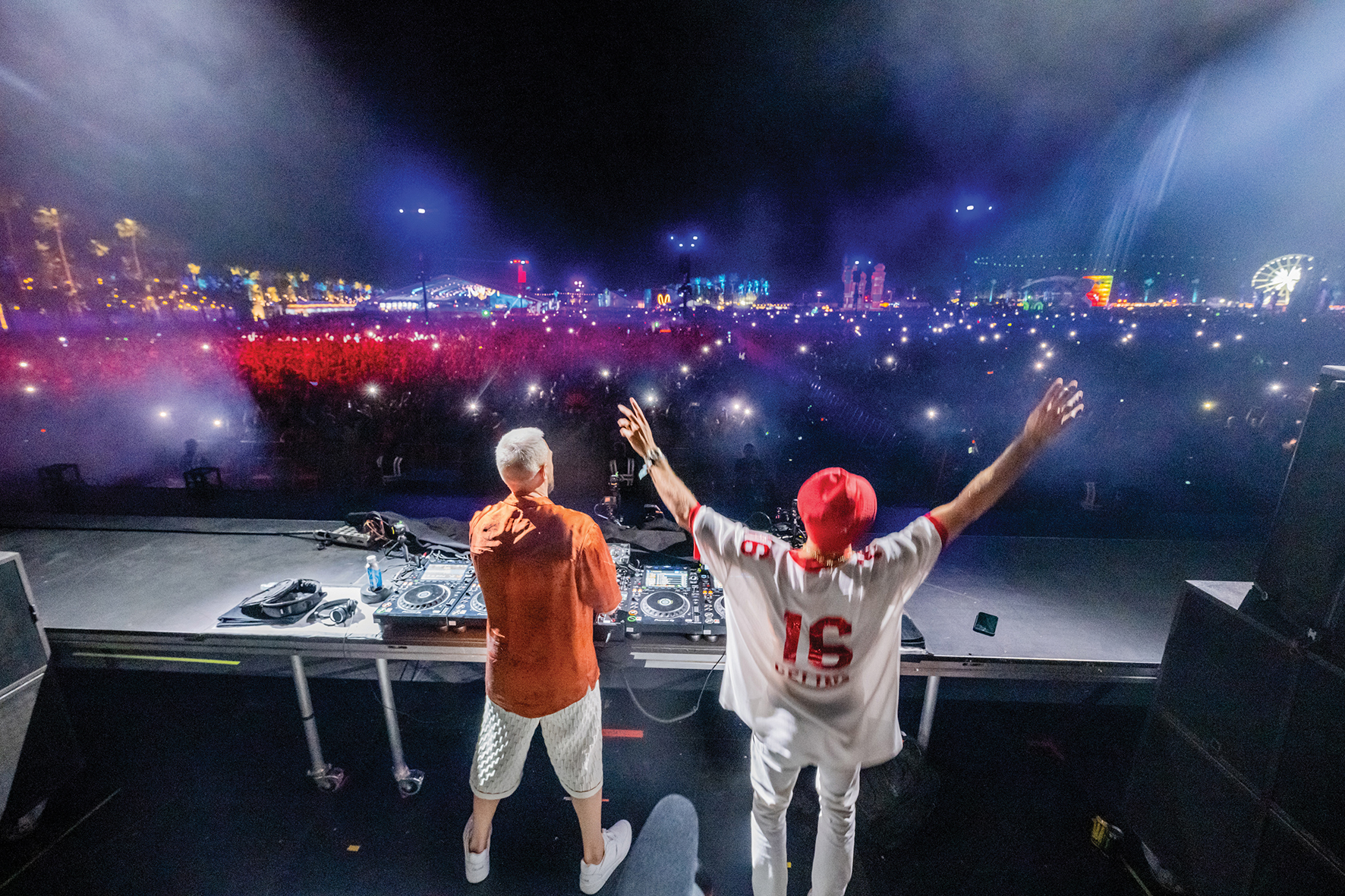
Chris has been a long-time resident of LA, and shares a deep knowledge on the evolution of America’s dance music culture: “The story in America is interesting because dance music really started there. It was kind of killed off there as well. There was lots of legislation and demonisation of raves that really killed off the scene.
“It killed off the foundations of what kept the scene alive. In the 2000s there wasn’t that much stuff going on. In 2003, [then Senator] Joe Biden created this thing called the ‘RAVE Act’ which did a lot of harm, it demonised the genre and implied it was all linked to drugs. It blamed the scene. It really affected it.”
“Over time, it softened and [early 2010s] EDM re-opened those doors to America, it all felt quite new in a way. People who were 18 when Skrillex dropped his first EP will now be 31; tastes evolve. The support structure around the scene has grown. There wasn’t even that much electronic music journalism in North America 13 or 14 years ago, but that all grew around the EDM era and it evolved.
“That hasn’t dissipated, so there’s a stronger foundation for the scene as a whole. There’s more access to the scene and to the music, it feels really, really good. It’s quite forgiving and quite open. That’s the big difference between America and Europe – that support structure has been in Europe for 30-plus years, whereas for America I feel like it wasn’t there in the same way.”
Art or artificial?
A couple of years back, Chris collaborated with Grimes on the track A Drug from God , which was launched via Grimes’ ‘AI girl group’ named NPC. With AI an omnipresent talking point right now, we wonder if Chris feels that the encroachment of AI into the music industry is going to ultimately prove beneficial or prove to harm artists even further.
“I’m a technologist, and I love the possibilities of what technology can bring. I’ve always taken the stance of embracing the potential benefits of what things can bring. I’m still trying to hold on to that with AI because I genuinely believe that huge benefits are going to come from it. But it really needs regulation. The possibilities are scary. The ways it can be abused are far beyond what most people understand.”
I genuinely believe that huge benefits are going to come from AI. But it really needs regulation - the possibilities are scary
Chris continues: “I hope that the true human touch can bring about something that ends up feeling beyond anything AI could ever bring. It might end up understanding me and my music better than I do. I see it sometimes. I’ve seen videos of (human-created) track breakdowns, explaining how they’ve been made. Some of them are so fucking good, they’re explaining what I’m doing, and sometimes it’s stuff I didn’t realise I was doing. I had no idea I was doing that. But someone understood it on a deep level. Maybe AI can figure that out, too.”
A terrifying thought, perhaps, but as our time comes to an end, it’s Chris Lake’s contagious enthusiasm that reminds us of the pure uninhibited joy that you can find yourself in when producing music. Even with the success that he’s already achieved, it’s clear that he still feels that same excitement for music-making as he did when picking up Computer Music Magazine off the shelf at the start of his journey.







